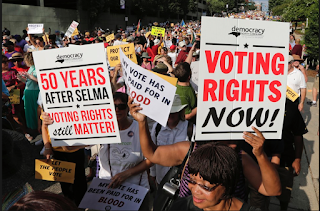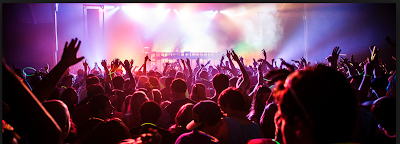The first time I witnessed hate
By Milt Higgins
I was sitting in
my dorm watching television, shocked just like a significant number of
African-Americans after the Rodney King v. Los Angeles Police Department
verdict. A helicopter provided video for the beginning of the 1992 Los Angeles
riots.
Then the
shocking live footage provided something I watched before: a white truck driver
pulled out of his truck cab by black men and beat nearly to his death. It reminded me of a rainy day in 1979 on a
Lexington, Kentucky school bus.
George was a
couple of years older than me. He and his two younger sisters rode the bus from
the west end of Lexington to the school across town just like all the kids in
the neighborhood. The three of them
always crammed together in the leather-like seats to and from school.
Everybody on
that bus had commonalities. We wore
K-Mart clothing or its seemingly equal hand-me-down clothing covering our dirty
skin- depending on which day of the week we took a bath.
George and his
sisters were a little different than the rest of us. They were white.
George seemed
like a good guy. I heard him talk once,
but that was at school in the hallway. I never saw him or his sisters in the
neighborhood, but I knew which house he occupied. I think everybody else did, too.
Unfortunately,
it was probably good we never saw him around Michigan and Ash streets and
definitely not at Douglas Park or the Charlotte Court projects unless he had a
grown up with him. I had a hard enough
time just being a light-skinned black person.
On this day the
usual suspects were up to no good and looking for any reason to cause
trouble. They hopped seat to seat
seeking penny candy other kids bought at the little convenience store a half a
block away from the bus stop.
Jolly Ranchers,
Now And Laters (pronounced now-or-laters), Squirrel Nut Zippers and Mary Janes
were the usual candy to exchange hands to get the deviants back to their
regular seats in the back of the bus.
Most kids sat
two to a seat, except for the boys in the back and George and his sisters. This routine was repeated every new school
year, and as usual, seniority got the back seats. Even public school buses have a hierarchy.
This was not the
case for George. He never moved up the
ranks despite his seniority- another year and the same seat in the middle.
The back seat
boys eventually made their way up to George and his sisters. One grabbed a seat across the aisle from them
and another placed himself behind them.
Instead of bumming
or demanding candy from George and his sisters one of the back seat boys
sniffed the rain-soaked siblings and yelled a question for his amusement.
“Why do y’all
smell like wet dogs?”
No one answered
the absurd question, except for his cronies who repeated the question.
Since George and
his sisters continued to stare straight ahead, as if the question was never
asked. That only fueled the self-made interrogator’s fire.
One of the boys
took it upon himself to reach out and flip one of George’s sister’s hair. We all sat there awkwardly silent. This was the second time I ever heard
George’s voice before it was interrupted by a fist to his jaw and then another
to the back of his head.
George’s body
disappeared under the assailants’ bodies as he continued to take blows from
four, five or six different fists. His sisters, backs now smashed against the
bus windows were crying uncontrollably.
White boy this
and honky that kept coming out of the attackers’ mouths as they continued to
punish George for reasons unknown.
Thankfully the
bus driver pulled the bus over.
By then,
George’s red blood smeared his face and his attackers’ clothes. It was the last time I ever saw George and
his sisters.
I watched Alex
Haley’s Roots for more than a week a few years before this incident. I knew George and his sisters weren’t old
enough to own black slaves, and I knew George was smart enough never to utter
the N-word in hostile territory.
Lexington’s
decision to bus us across town to the predominately white school was probably
the best thing we could ask. It cultured
us at an early age, some more than others, to prepare us for our future and a
better America.
Nothing was
great about this day for George and his sisters.
While I didn’t
have the simple words or courage to express my feelings as a 10-year-old child,
13 years later an ordinary, flawed man said what I always felt after his brutal
beating at the hands of authority.
“Can’t we all
just get along?”






